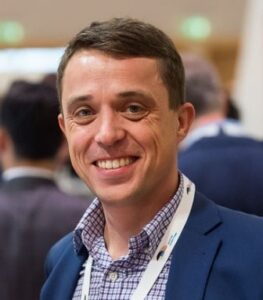
Łukasz Madej, Professor
Lukasz Madej, in 2003, received an Engineering degree at the Department of Physics and Nuclear Techniques of the AGH University of Science and Technology in the field of Solid State Physics. In 2004 he defended his Master’s thesis at the Faculty of Metallurgy and Materials Science in the field of Information Technology in Material Science. In 2007 he obtained a Ph.D. degree in the field of Applied Informatics. In 2011 he received a D.Sc. degree and a full professor title was granted by the President of Poland in 2019. Presently he is head of the Multiscale Modelling division at the Department of Industrial Computer Science and Modelling AGH University. He is also a vice-president of the Polish Forging Association, executive board member of the Euroforge, a member of the board of directors of Esafom and an associate member of the CIRP, The International Academy for Production Engineering. During his research carrier, he was a visiting academic or visiting professor at renowned academic centers around the world.
His expertise lies in computer-aided technology development solutions, material science, process digitalization, production process monitoring tools within the concept of Industry 4.0, and multiscale modelling techniques.
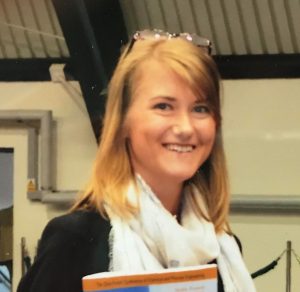 Magda Barecka,
Magda Barecka,
PhD
Dr. Magda H. Barecka is a chemical engineer with both academic and industrial expertise in process intensification, process retrofitting and design. She received the PhD title from TU Dortmund University and Lodz University of Technology as a joint Diploma.
She is an author of a systematic methodology supporting implementation of intensified technologies in the chemical industry, which has been successfully transfer into industrially applicable tools. Currently, Dr. Barecka is working at an overseas department of University of Cambridge (Cambridge CARES) in Singapore, focusing on application of novel intensified operations in the field of carbon dioxide conversion.
Apart from research related to process simulations, modelling and photochemistry, she actively contributed in several European grants in the field of energy efficiency, sustainability and environmental impact assessment (LCA).
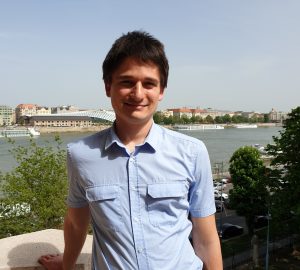 Jozsef Kupai, PhD
Jozsef Kupai, PhD
Jozsef Kupai from the Faculty of Chemical and Bioengineering, Budapest University of Technology and Economics defended his PhD thesis ’Synthesis and application of chiral 18-crown-6 ethers containing a pyridine subunit’ in 2012 at the Faculty of Chemical and Bioengineering, Budapest University of Technology and Economics (BME). Since January 2021 he is employed as an Associate Professor at Department of Organic Chemistry and Technology. He is the head of Organocatalysis Research Group (www.kupaigroup.com), and member of Faculty Council from 2016, and recently (at the end of 2020) he became the vice-head of the Institute for Organic Chemistry Group.
He was a principal investigator (2013–2017) of the ‘Synthesis and application of new thiourea, amide and sulfonamide type organocatalysts containing heterocycle subunits” National Research, Development and Innovation Office project financed by the Hungarian Academy of Sciences. This grant was received excellent (10/10) qualifications by the reviewers. Since then he is focused on the synthesis, application, and recovery of cinchona-based organocatalysts.
In 2016 Dr. Kupai worked as a visiting academic in School of Chemical Engineering and Analytical Science at The University of Manchester, UK in the laboratory of Professor Gyorgy Szekely.
Jozsef Kupai is the co-author of 34 publications in peer-reviewed international journals (in 9 of them as a corresponding author), his articles have 381 independent citations, his Hirsch index is 13, and in 2018 he has been awarded the Bolyai Research Fellowship by the Hungarian Academy of Sciences (H. A. S), and recently (2020) the Gyozo Bruckner Prize by H. A. S. He is a supervisor of 1 postdoc, 2 Ph.D. students, 1 MSc, and 6 BSc students, and takes the Organic chemistry I and II lectures, practicals, and laboratory for international and Hungarian students at the university. He won the prize ’Excellent Lecturer of BME’ as the second-best lecturer among all the professors at the university according to the votes of students in 2016. At the end of 2020, two of his Ph.D. students successfully defended their Ph.D. theses (entitled Synthesis, application, and membrane-assisted recovery of homogeneous organocatalysts; and Synthesis, application, and recycling of new asymmetric organocatalysts containing cinchona skeleton).
Dr. Kupai is a Guest Editor of a Special Issue entitled ’Advances in Organocatalysts: Synthesis and Applications’ at the MDPI journal Materials, and Review Editor of the Separation Processes section of the journal Frontiers in Chemical Engineering.
In 2020 he won the prize for the best article in Hungary in the chemical field (the so-called Kisfaludy Prize) with his paper published in ACS Catalysis (IF=12.2)
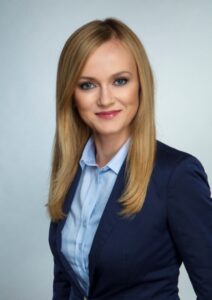 Maria Kurańska, PhD
Maria Kurańska, PhD
Maria Kurańska has been working at Cracow University of Technology since 2014. A substantial part of her works is aimed at evaluating a possibility to apply selected renewable materials in the form of bio-polyols and natural fillers as well as flammability-reducing substances in the synthesis of thermal insulation rigid foams with a low apparent density. She has participated in research projects (EranNet Matera BBPM, BIOPURFIL PIRSES, EPURNAT). Currently, she is project coordinator of the project no. LIDER/28/0167/L-8/16/NCBR/2017 financed by the National Centre for Research and Development in Poland. The main goal of her research is to develop a technology of waste vegetable cooking oil recycling following the methods of chemical synthesis through epoxidation and oxirane ring opening and transesterification.The studies fit in the circular economy model.
She is an author of numerous scientific publications with the Total Impact Factor exceeding 130. She has been honoured by the magazine Wysokie Obcasy and listed among „50 Bold Women of 2018” whose work changes the world for the better. The technology she has developed has been distinguished by the Polish Women Scientists Network in the contest „Innovation Is a Woman”. For her research activity, she has also received a Polish Intelligent Development Award 2019 in the category „Scientist of the Future”.
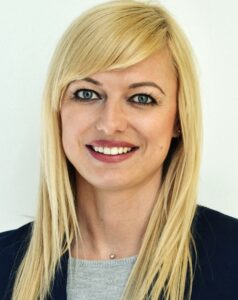
Agata
Przekora-Kuśmierz,
PhD , professor of Medical University of Lublin
Research Professor (scientific post) at the Department of Biochemistry and Biotechnology of Medical University of Lublin (Poland). She obtained her master’s degree (2009) as Biotechnologist from Maria Curie-Skłodowska University in Lublin (Poland) and PhD (2014) as well as habilitation degree (2018) in Pharmaceutical Sciences from Medical University of Lublin.
An expert in the field of engineering of biomaterials and tissue engineering. Her scientific background includes fabrication of polymeric drug carriers and biomaterials for bone, cartilage, and skin regeneration. Specialist within the isolation of stem cells from adipose tissue for regenerative medicine applications as well as within the use of in vitro cellular models in preclinical studies, including preliminary evaluation of biocompatibility of novel biomaterials.
Since 2018 an expert of European Commission for evaluation of R&D projects within Horizon 2020 Programme. An author/co-author of 8 patents, 4 patent applications, and 62 scientific articles (IF = 195.665) in the field of tissue engineering, materials science, and drug discovery. Main or Principal Investigator in 11 research projects related to engineering of biomaterials and tissue engineering. Her current research projects is: OPUS (NCN) “Comprehensive evaluation of biomedical potential of novel macroporous cryogel-based biomaterials produced by freeze-drying technique combined with foaming agent”.
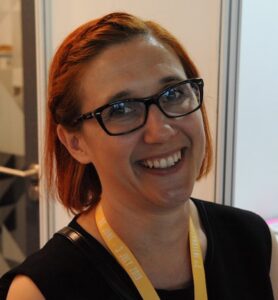 Lena Ruzik, PhD
Lena Ruzik, PhD
Lena Ruzik studied chemistry at the Warsaw University of Technology and received her PhD there in 2007. She was employed as Assistant Professor at the Faculty of Chemistry from 2007 to 2020, did her habilitation at the Warsaw University of Technology in 2019, and since 2020 has been employed as Associate Professor. Her research focuses on the bioavailability investigation of element species and analytical methods to characterize their behaviour in presence of biomolecules. Her research centres around speciation analysis of trace elements, metals, and metalloids in food using hyphenated techniques. She has also been involved in the investigation of metal-based nanoparticles metabolism in edible plants. She has published more than 30 original papers and reviews. She is a member of Food Analysis Group in the frame of the Committee on Analytical Chemistry, Polish Academy of Sciences.
